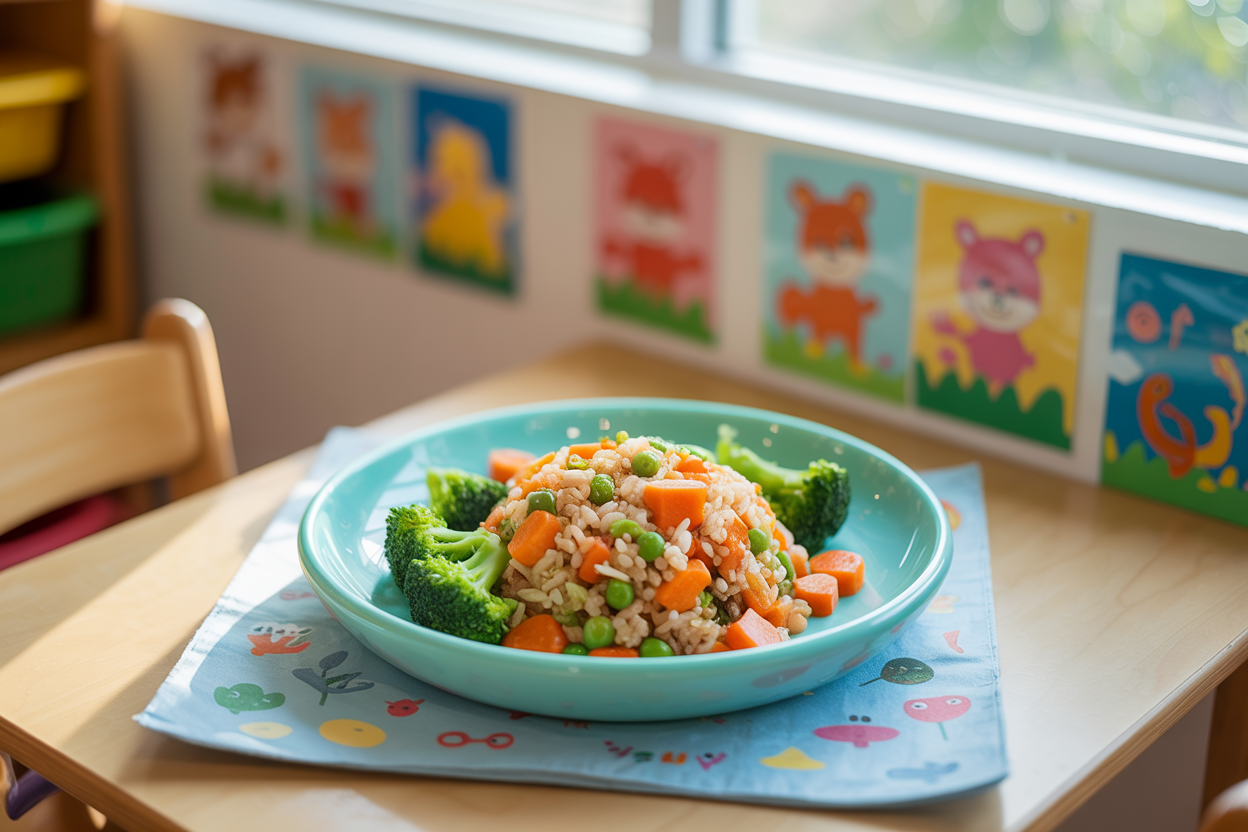
As summer winds down, childcare centres and schools begin preparing for one of the most important transitions of the year, back to school. That means new children, new classrooms, and new routines.
These changes are exciting, but they also bring big adjustments for young children. Whether it’s learning a new schedule, adapting to a different educator, or simply figuring out where the bathroom is in a new space, it takes time for children to feel settled.
Thoughtful planning makes all the difference. One area that plays a central role in that planning is nutrition. From managing allergies to building food routines that feel familiar and safe, mealtimes matter. What and how children eat influences everything from regulation to confidence to connection.
Build Allergy Awareness into Your September Planning
As new children join a centre, allergy profiles often shift. Staying organized and proactive helps set the tone for a safe and smooth year for children, families, and staff.
Here are a few strategies to support your September planning:
- Use a clear and consistent allergy intake form to collect detailed information from families about allergies, sensitivities, and dietary needs.
- Review allergy information as a full team before the first day. Whether you are in the classroom or in the kitchen, shared awareness helps ensure preparedness across roles.
- Post updated allergy details in visible areas such as classrooms, prep spaces, and staff communication boards.
- Follow clearly established food handling procedures to reduce the risk of cross-contact. This may include using separate utensils, implementing allergy-friendly serving practices, and maintaining consistent communication throughout the day.
Meeting Allergy Safety Standards in Child Care
The most common allergens include:
Dairy, eggs, peanuts, tree nuts, soy, wheat, sesame, fish, and shellfish.
Every child is different, which is why having clear, up-to-date allergy records shared with your team and Wholesome Kids ensures safe and confident mealtimes.
These practices support compliance with Section 42 of the Child Care and Early Years Act (CCEYA), which requires licensed centres to maintain accurate allergy records and procedures to prevent exposure. Just as importantly, they reduce stress for staff and build confidence with families.

At Wholesome Kids Catering, we take the stress out of allergy management by providing safe alternatives and tailored meals for children with common allergies. Directors and educators can feel confident that every child receives nourishing food designed to meet their needs.
Just as importantly, these practices, and our allergy-conscious approach, reduce stress for staff and build trust with families.
Food Routines That Support Regulation
In the foundational years, food is more than nutrition. It is one of the most consistent anchors in a child’s day.
Whether you’re an educator organizing your classroom, a director welcoming new families, or a parent preparing your child for care, predictable systems make transitions feel easier.
Food routines can play a helpful role here. Knowing what meals are coming, how portions are managed, and how allergies are handled brings clarity and calm to what can otherwise be a hectic time of year.
That’s why we provide the following resources to support centres and families:
- An allergy guide aligned with the current menu to support safe meal service.
- A portion guide to help determine age-appropriate serving sizes for children at different developmental stages.

Nutrition Planning That Supports Children, Families, and Staff
When nutrition planning is intentional and organized, it strengthens more than physical health. It helps children feel comfortable, provides educators with reliable structure, and reassures families that their child is in good hands during times of change.
Transitions don’t just happen. They are pre-built one consistent routine at a time.
